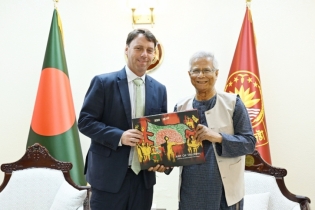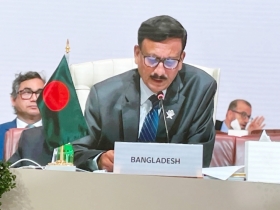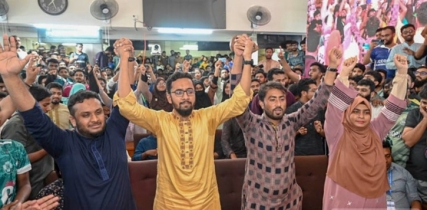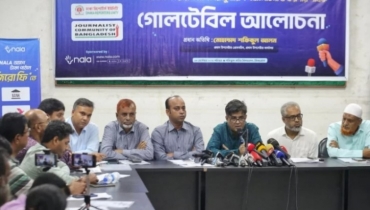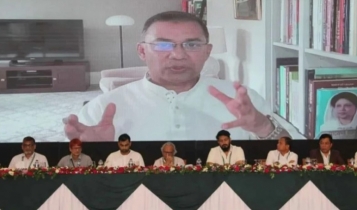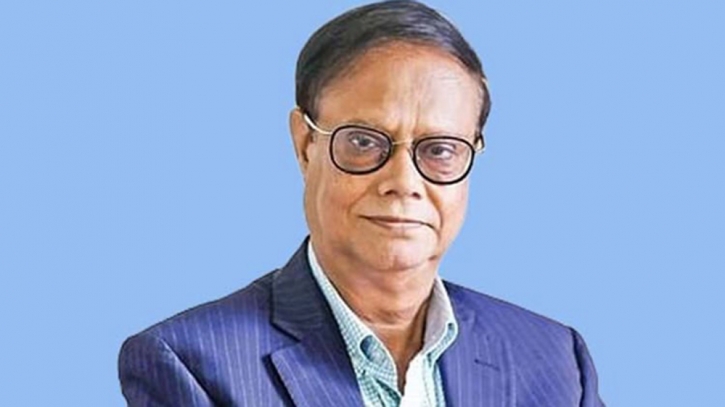
Staff Correspondent
Bangladesh is making rapid progress toward a cashless and interoperable instant payment system, said Bangladesh Bank Governor Ahsan H Mansur. The governor said this while speaking as the chief guest at a "Stakeholder Discussion on Interoperable Payments in Bangladesh" held at a hotel in Gulshan on Monday.
"A cash-based economy is expensive for us. The banking sector loses about Tk 20,000 crore annually, and the government loses around Tk1.5 lakh crore in revenue. Therefore, we must gradually reduce cash usage and transition to digital transactions," he added.
According to the governor, an interoperable instant payment system will be introduced soon, which allows anyone to make payments or exchange funds instantly, anytime and from anywhere.
He expressed the central bank's desire to move quickly with this process. Once successfully implemented, this system will connect all financial institutions in the country on a single platform, pushing Bangladesh toward a cashless economy.
Mansur noted that the demand for cash in Bangladesh is increasing at a rate of 10 percent annually, a trend that has remained constant for several years. To break this pattern and make economic activities more transparent, the central bank is preparing to launch a unified instant payment system. All financial institutions, including banks, mobile financial services (MFS), microcredit institutions, and digital banks, will be linked to this single platform, he said.
The governor mentioned that the process of launching digital banks in Bangladesh has already begun, and assistance is being taken from the Gates Foundation to implement the interoperable instant payment system. He stated, "Previously, initiatives were taken, but they were unsuccessful. This time, we want to launch an effective system by leveraging proven international experience."
The keynote speech at the event was delivered by Bangladesh Bank Executive Director Arif Hossain Khan. Other speakers included Bangladesh Bank Deputy Governor Zakir Hossain Chowdhury and Snigdha Ali, head of the Gates Foundation and IFS Bangladesh.
The governor highlighted that Bangladesh has made significant progress in financial inclusion, with about 64 percent of the population now covered by the financial sector, though 35-40 percent remain outside it.
He emphasised that merely increasing coverage is not enough; the rural population must be more deeply integrated into the financial system.
The central bank has already mandated that all businesses must display QR codes at their establishments. The governor believes this will encourage direct digital payments and reduce cash transactions.
"Our goal is to reduce cash usage at both the front and back ends," he said. "We want to popularise digital QR payments in shops, restaurants, and markets."
Mansur also pointed out that while the microcredit sector is vast, it occupies less than 10 percent of the banking sector. He stressed that this sector will not be sustainable without technology. Similarly, agent banking is growing rapidly but still faces limitations in loan disbursement.
In a recent decision, Bangladesh Bank has mandated that at least 50 percent of agent bankers must be women. The governor explained, "Women in rural families can easily communicate with housewives, daughters, or mothers-in-law. Therefore, including women as agents will enhance financial inclusion."
The governor announced that the mandatory requirement of submitting income tax returns for credit card applications has been canceled, which is expected to boost credit and debit card usage. Additionally, the micro-loan limit in the MFS sector has been set at BDT 50,000 and will be gradually increased.


